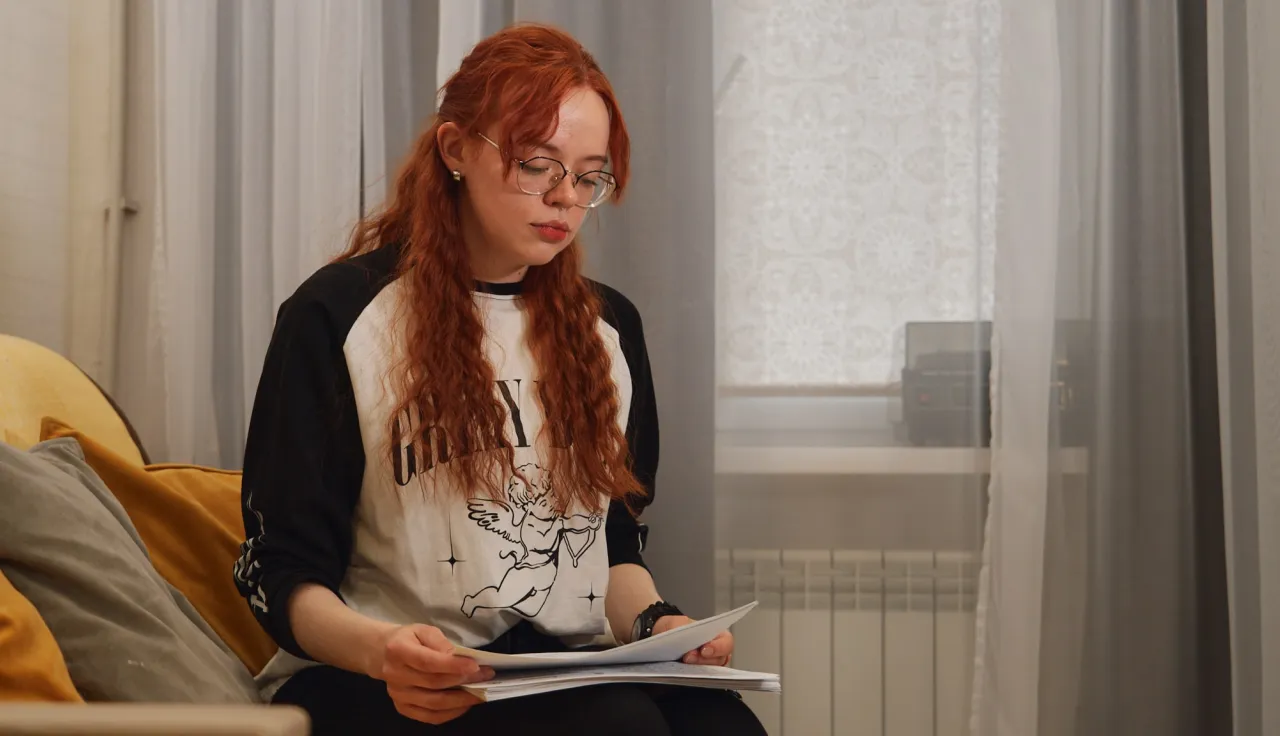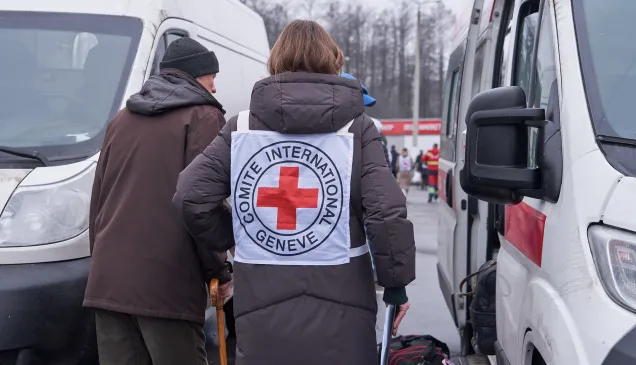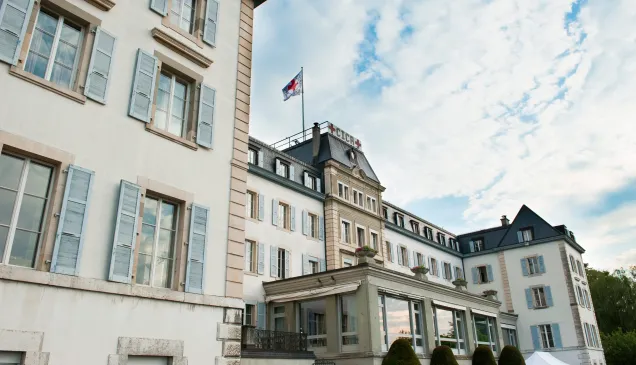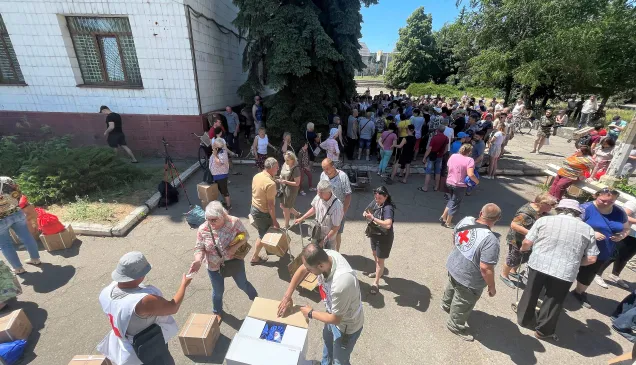Russia: the mounting anguish of waiting for news

Waiting is never easy, but waiting for news from a loved one is particularly painful. That is the daily reality for thousands of families whose loved ones have been captured during the international armed conflict between Russia and Ukraine.
"When the first letter from the Red Cross arrived, I just ... I reread it, looked at it again and again. I know it by heart. ... I was so happy to have a connection with my son, it's impossible to even describe," says Anna, whose son was captured in February 2023.
Anna is able to send letters to her son and receive replies from him thanks to delegates of the International Committee of the Red Cross (ICRC) who visit prisoners of war. During these visits, the prisoners can give the delegates written or oral messages for their families back home. The messages are transferred to the ICRC delegation on the other side of the front line and delivered to their relatives. The relatives, in turn, write replies, which the ICRC delivers to the prisoners of war.
This is one of the reasons why it is so important for the ICRC to be able to visit prisoners of war regularly. It allows them to stay in touch with loved ones, which is crucial both for the prisoners of war themselves and for their relatives: it helps them cope and survive challenging times. It is also a right stipulated in the Geneva Conventions.
“The more time passes, the more difficult it becomes. ... And every time a letter arrives, it's like a breath of fresh air, new, clean, finally. When you see that the words are truly written by his hand. Truly, the words that only he can speak. It gives you some hope,” says Valeria, whose husband is being held.
Since February 2022, ICRC staff have visited more than 7,200 prisoners of war on both sides of the front line – mainly in Ukraine – and have conveyed approximately 22,800 written and oral messages between prisoners and their relatives. Each of these messages is unique, but all embody the fundamental human desire to stay connected despite the distance – to know how your loved one is doing and to share your feelings and news with them.
After Lina's son was captured, she and her family went through a difficult time when there was no news. The unknown gnawed at her from within, creating a never-ending flow of anxious thoughts that she couldn’t stop.
“After a while, I got a call. Honestly, at first I thought it was spam because the person didn't speak Russian very well. They said, ‘This is the Red Cross,’ and then I realized it was real. He was alive! I was jumping and crying, screaming and crying with happiness,” Lina recalls of receiving her son's first message from an ICRC delegate.
An ICRC staff member working in the ICRC’s Protecting Family Links Unit in Moscow explains: “The families always look forward to receiving family news. They are always happy to hear anything from us. When it's their first call from us, with the very first information on their relative, of course, often there are tears. It can be difficult for them to quickly realize that they have actually received news.”
There are still over 174,000 people reported by their families to the ICRC as missing from both sides of the international armed conflict between Russia and Ukraine. Some of these families will receive good news; some will receive sad news. For some, unfortunately, the answer may never arrive.
All these families have the right to know what happened to their loved ones. If your loved one has been captured or is missing, please contact us.



